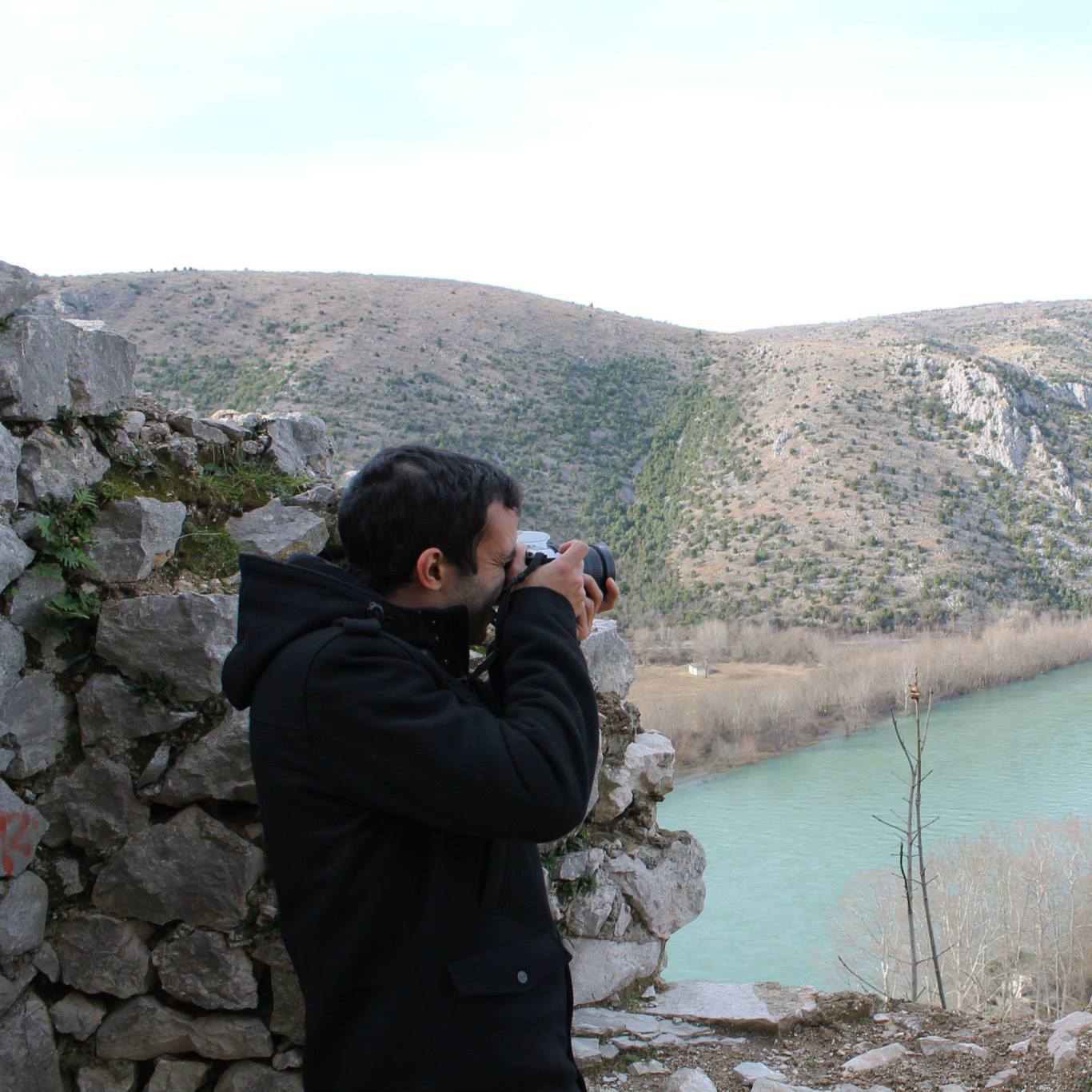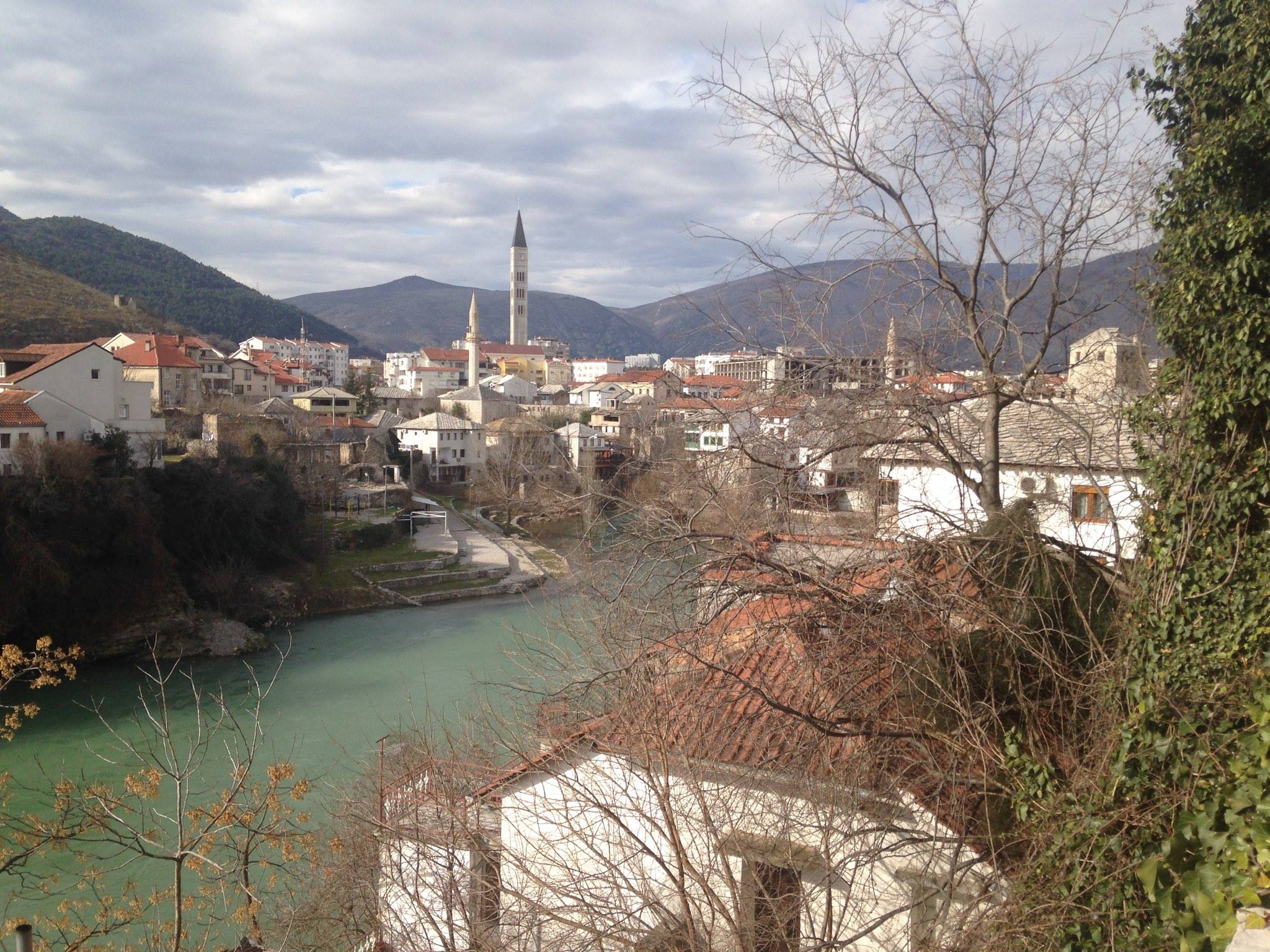 12:45 p.m. Sarajevo, Bosnia & Herzegovina
12:45 p.m. Sarajevo, Bosnia & Herzegovina
Energized from the restful transatlantic flight, I eagerly stepped into my new apartment. In no time I quickly unpacked, drafted a grocery list and set out to learn the lay of the land. On my way into the center of the city, I came across a local open-air market complete with fresh meat and gleaming produce – what luck! Filling up my backpack with enough groceries to last me the week, I couldn’t help but smile: getting settled wasn’t going to be so difficult after all.
5:00 p.m.
Back at the apartment, the pleasant sound of a call to prayer drifted into my apartment as I prepared a hearty dinner in my new apartment. I was finally all unpacked and looking forward to a good night’s sleep in my freshly made bed. This is how I imagined my first hours in Sarajevo would go. I had gone over this scenario again and again in my head for months.
Here’s what really happened:
12:45 p.m. Sarajevo, Bosnia & Herzegovina
Still reeling from my Lufthansa inflight meal and struggling to keep my eyes open, I stepped into my new, cozy, cigarette-scented apartment – my home for the next seven months. Finally, I was in Bosnia and Herzegovina. Sarajevo was an oyster just waiting to be cracked open.
5:00 p.m.
I awoke with a start to the mournful call to prayer coming from the minaret of a nearby mosque. Facedown on a bare mattress with my bags still packed by the door was not how I imagined my first hours in Sarajevo. I watched as the sun dipped below the mountains in the distance and as darkness fell I began to feel a sense of profound loneliness. I have never had problems with homesickness and this certainly was no exception – it was different: it was nighttime in a city I was unfamiliar with, I had no food in the fridge and my unplanned nap meant that any exploration was going to have to take place at night.
 Here are four ways you can make your transition :
Here are four ways you can make your transition :
1. Go with the flow.
Manage your arrival expectations. The reality is that you are in an entirely new place with very little bearing and no amount of preparation can make up for this. The simplest things about getting settled can be quite overwhelming. In my case, jet lag was killing me and I certainly wasn’t firing on all cylinders. Figuring out the appliances and procuring food for myself seemed like monumental tasks.
But the trick is to put everything in perspective – it’s very easy to let frustration and apprehension cast a negative light over the experience early on and this can really ruin what would otherwise be an incredible time. Taking minor setbacks in stride and recognizing that they represent a miniscule fraction of your overall experience will greatly help your overall mindset.
2. Get your bearings.
Figure out your surroundings, find a food source, locate the office, etc. While the temptation to begin exploring right away is a strong one, try to focus on getting situated first. Six months is a long time and you will undoubtedly know your new home like the back of your hand by the end of it – so why not make the transition smooth and hassle-free first?
3. Don’t lose sight of who you are.
It sounds like a cheesy cliché, but it is important. A lot of times, usually due to political reasons, Americans feel slightly insecure in other cultures – particularly cultures that we have been involved with militarily. This may cause you to want to “just blend in” and not be identified as an American abroad. While I would never advocated ambling about your new home shouting at locals while wearing a Tommy Bahamas shirt and Tivas, maintaining your identity abroad is important. You are allowed to be proud of your nationality and also respectful of your host culture. In most cases, locals will be excited to meet you and hear about home. As with most Americans, I have found that Bosnians can differentiate between politics and individual citizens. Additionally, if you happen to be in a country where corruption is prevalent or perhaps you look a bit different (I look a little Roma) making your nationality apparent can really come in handy. In most countries, the U.S. Embassy carries weight and most corrupt police officials will give up harassing you if you simply break out your phone and threaten to check with the local representative.
4. Understand.
If you go into your transition drawing constant comparison to home, you will not only ruin your own experience, but you will likely miss out on some insightful, once-in-a-lifetime interactions with locals. Anything you learn on the job, will pale in comparison to what you will glean from just talking to people. In my case, BiH went through a traumatic war in the 1990s and the scars from this conflict are still highly apparent today, emotionally and physically. In addition to the damage caused by the war (still visible throughout the country), it left deep ethnic divisions within the population – divisions I will never be able to fully understand. But by accepting that there are personal aspects of this situation that can’t be explained in a textbook or documentary has made my conversations with people who lived through it all the more meaningful. Don’t be afraid to be taught – you may find that the world looks differently outside of our corner of it.